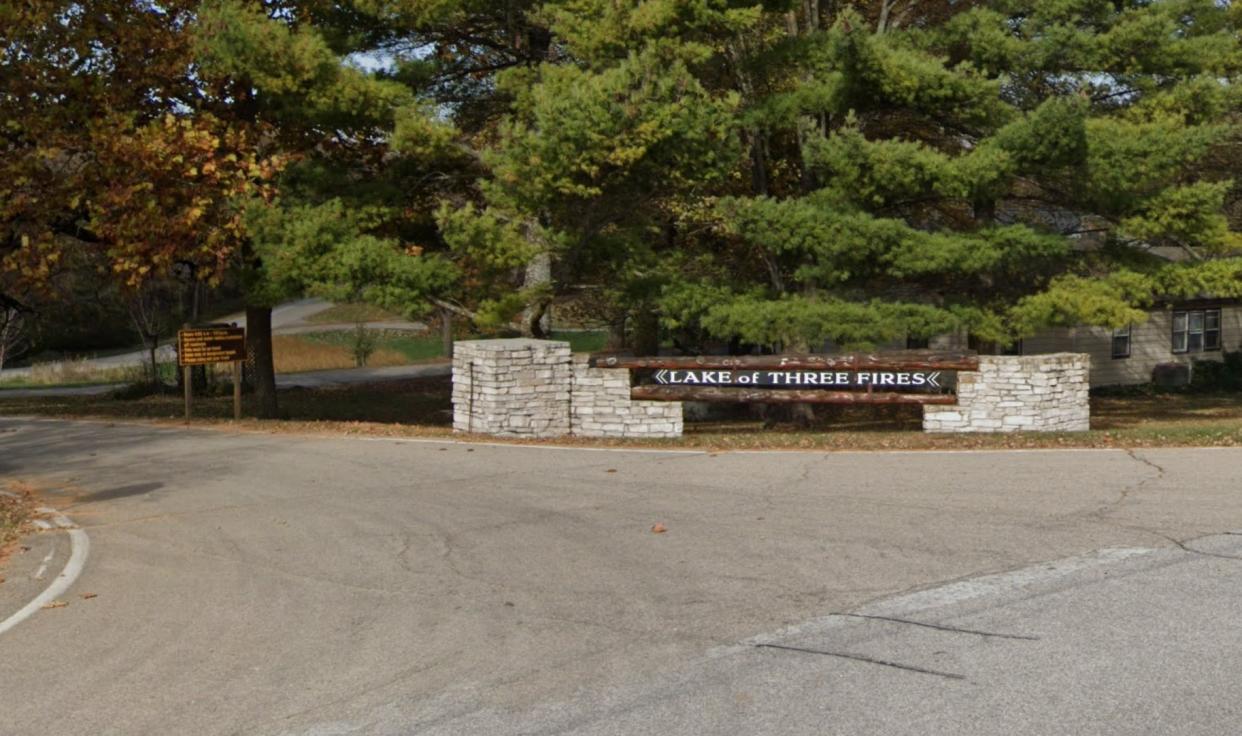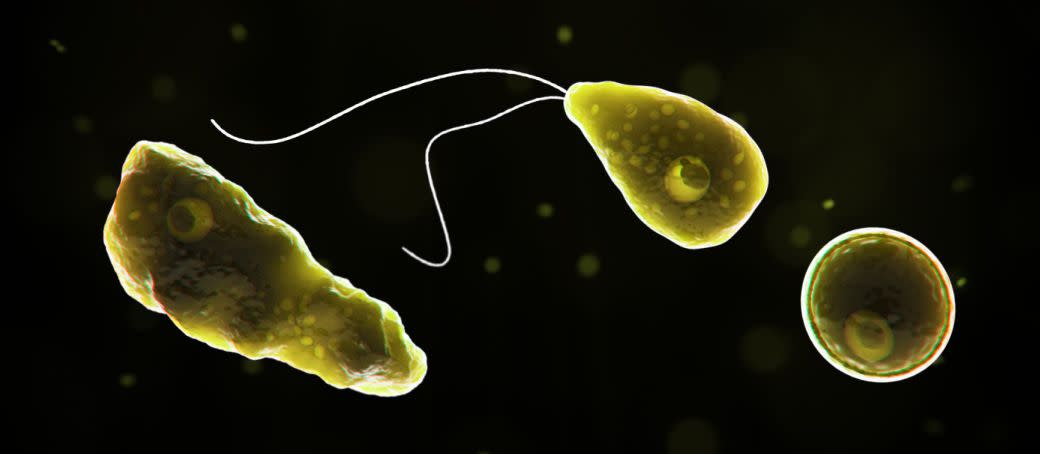Man who contracted rare infection from brain-eating amoeba has died
A man who was being treated for a rare infection from a brain-eating amoeba has died.
The Lake of Three Fires beach in Taylor County, Iowa, suspected of being the source of the single-celled amoeba, has been closed since July 7. Health officials believe he got infected during the last two weeks of June.

The entrance to Lake of Three Fires State Park in Bedford, IA. (Google Maps/)
The Missouri resident, who was not identified, had been diagnosed with Primary Amebic Meningoencephalitis from the single-celled amoeba Naegleria fowleri after swimming in the lake at the beach, about 120 miles north of Kansas City, Missouri. He had been in intensive care, though the disease is almost unilaterally fatal, according to the U.S. Centers for Disease Control and Prevention.
The beach is still closed, Iowa Department of Natural Resources spokesperson Tammie Krausman told the Des Moines Register, which first reported the man’s death.
An infection with the amoeba is rare, but it can happen when the water it’s living in enters the body through the nose, most frequently as victims swim or dive in lakes and rivers, the CDC says. At least 97% of those who contract PAM die, CDC statistics show.
While the amoeba is ubiquitous in warm freshwater all over the U.S., the infection itself is extremely rare, with just 154 cases confirmed in the United States since 1962, the Missouri Department of Health and Senior Services said in a statement when the man’s case was announced. This was just the second since 1987 in a Missouri resident, and no other cases are suspected, the department said.
Once it has found its way up someone’s nose, Naegleria fowleri amoeba can travel to the brain, “where it destroys the brain tissue,” the department said, noting that it can’t be spread from one person to another or contracted by swallowing contaminated water.

Computer-generated representation of Naegleria fowleri in its ameboid trophozoite stage, in its flagellated stage, and in its cyst stage. (CDC/)
“These situations are extremely rare in the United States and in Missouri specifically, but it’s important for people to know that the infection is a possibility so they can seek medical care in a timely manner if related symptoms present,” Dr. George Turabelidze, Missouri’s state epidemiologist, said in the statement.
Symptoms can include severe headache, fever, nausea, vomiting, stiff neck, seiozures, altered mental status and hallucinations, the department said.
To maintain the family’s privacy, the Missouri health department declined to identify the deceased person.
“Because these cases are so incredibly rare and out of respect for the family, we do not intend to release additional information about the patient which could lead to the person’s identification,” Missouri health department spokesperson Lisa Cox told the Des Moines Register.
